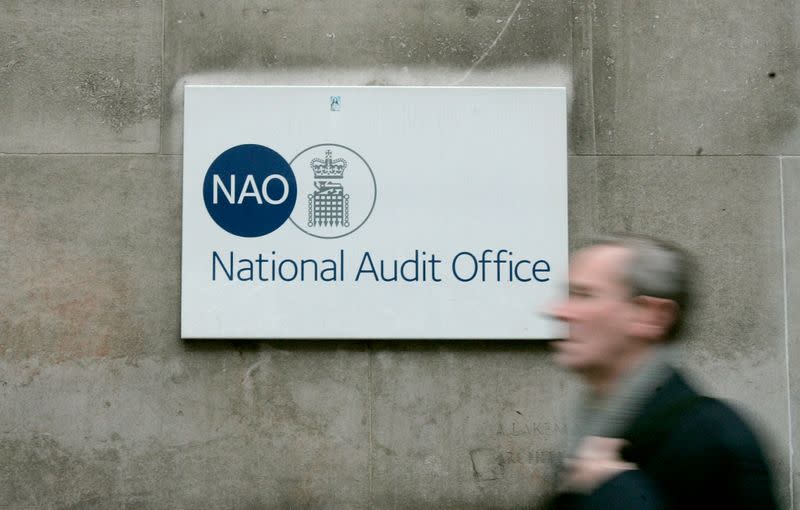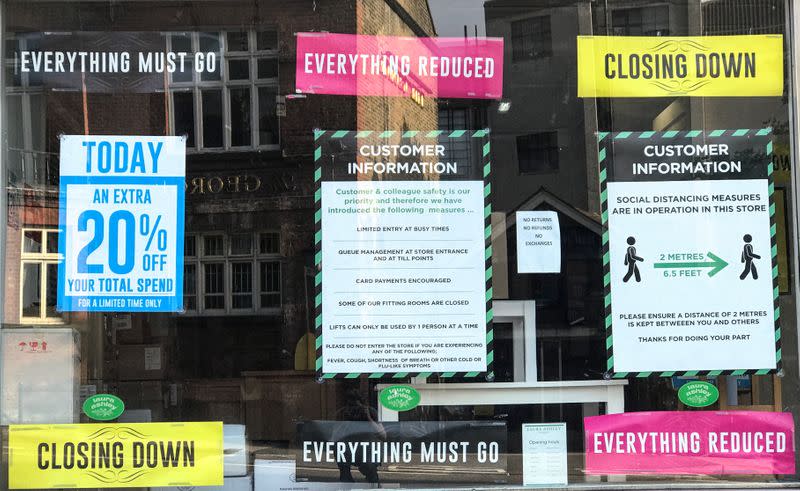UK COVID loan scheme could lose 26 billion pounds from fraud, defaults- watchdog
By Michael Holden
LONDON (Reuters) - Criminals may have made billions of pounds by exploiting a government loan scheme to help British businesses hit by the coronavirus, while large losses are expected from firms unable to repay, the country's spending watchdog said on Wednesday.
The Bounce Back Loan Scheme, launched in early May, allows banks quickly to lend businesses up to 50,000 pounds with 100% state guarantee.
The National Audit Office (NAO) said that while the scheme provided fast support to small firms, it could lead to between 15 billion and 26 billion pounds in potential losses from fraud and default, although the estimates were "highly uncertain".
"Unfortunately, the cost to the taxpayer has the potential to be very high," Gareth Davies, the NAO head said.
According to the government's business department (BEIS) and the British Business Bank, the scheme is expected to lend 38-48 billion pounds by Nov. 4, well in excess of the 18-26 billion originally envisaged, the NAO said.
By early September, more than 1.2 million loans worth nearly 37 billion pounds had been made, mainly to small businesses. To speed up the process, the scheme relied on self-certification and no credit checks for existing customers.
The watchdog cited BEIS and the British Business Bank estimate that 35% to 60% of borrowers might default on their loans, with a third-party review flagging a high risk of fraud through multiple applications and criminals taking money they had no intention of repaying.
The extent of the losses will not be known until next May when loans start being repaid, but Meg Hillier, who chairs parliament's Public Accounts Committee said it could be an "eyewatering loss of public money."
"The scheme’s hasty launch means criminals may have helped themselves to billions of pounds at the taxpayer’s expense," she said.
The government said the loans had provided a lifeline to thousands of businesses and protected millions of jobs.
"We targeted this support to help those who need it most as quickly as possible and we won’t apologise for this," a spokesman said, adding the government had sought to minimise fraud while the default rates were expected to be lower.
The British Business Bank also said lenders had introduced additional checks to mitigate fraud.
UK Finance, the trade body representing banks and lenders in Britain, said these checks included a cross-industry initiative to weed out duplicate applications.
"Applications from customers without an existing business account are subject to additional checks, including customer fraud, anti-money laundering (AML) and Know Your Customer (KYC) assessments prior to any loan being made," a spokesman said.
Earlier this week, the National Crime Agency said it would investigate serious and organised crime linked to the scheme, and help banks detect fraudulent applications.
(Additional reporting by Sinead Cruise,; Editing by Stephen Addison and Tomasz Janowski)



